
HR Management | A Guide to Simplify Business Operations
Human Resource Management: An In-Depth Overview
HRcosts.com helps simplify small business operations with HR Management buying guides and expert advice from entrepreneurs. We offer quote comparisons, buying guides, and up-to-date reviews.

92% OF SMALL BUSINESSES REPORTED INCREASED EFFICIENCY WITH OUTSOURCED HR. READY TO JOIN THEM?
Human Resource Management (HRM) is a strategic and systematic outsourced approach to the organization, development, and management of an organization’s most valuable asset – its employees. HRM is essential to the success of an organization, as it ensures that employees are engaged, motivated, and aligned with the organization’s goals and values. This document provides a comprehensive overview of HRM, its various solutions, and the main functions of HR management. Popular HR Management Services Include:
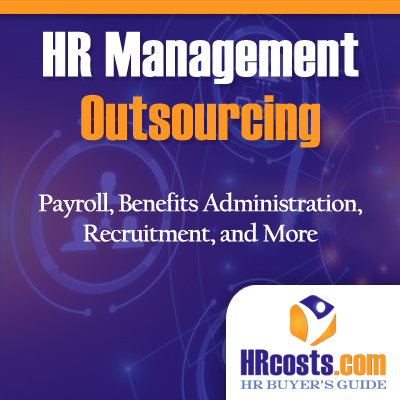
HR Management Solutions
Recruitment and Selection
Recruitment and selection are crucial processes that involve identifying, attracting, and selecting the most suitable candidates to fill job vacancies. HRM professionals use a variety of methods, such as job postings, talent sourcing, and candidate assessments, to find the right people for the organization.
Onboarding and Orientation
Effective onboarding and orientation programs are essential for new employees to become familiar with the organization’s culture, values, and expectations. HRM ensures that new hires have a smooth transition into the organization by providing them with the necessary resources, support, and guidance.
Training and Development
Training and development initiatives aim to improve employees’ skills, knowledge, and performance, ensuring they can contribute effectively to the organization’s goals. HRM professionals design and implement a variety of training programs, such as workshops, seminars, and e-learning courses, to enhance employee capabilities.
Performance Management
Performance management is the process of setting performance expectations, monitoring employee performance, and providing feedback to help employees achieve their full potential. HRM professionals use various tools and techniques, such as performance appraisals, goal-setting, and coaching, to facilitate continuous employee improvement.
Compensation and Benefits
Compensation and benefits management involves designing, implementing, and maintaining fair and competitive reward systems. HRM professionals work to ensure that employees are compensated fairly for their work and receive attractive benefits packages, which can include health insurance, retirement plans, and paid time off.
Employee Relations
Employee relations is a critical aspect of HRM that focuses on fostering a positive work environment, resolving conflicts, and maintaining open communication channels between employees and management. HRM professionals are responsible for implementing policies and practices that promote a healthy organizational culture and ensure employees feel valued and heard.
Legal Compliance
HRM professionals must ensure that the organization complies with all relevant labor laws and regulations, such as equal employment opportunity, workplace safety, and wage and hour regulations. Compliance with these laws and regulations is essential to avoid legal issues and maintain a positive reputation.
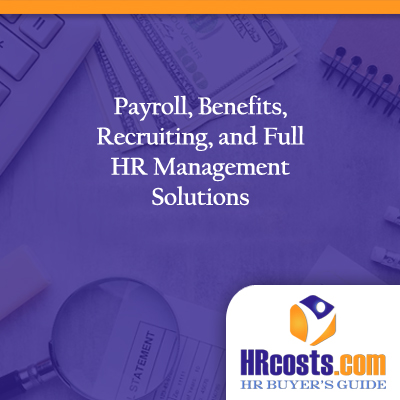
HR Analytics
HR analytics is the process of collecting, analyzing, and interpreting HR data to support decision-making and improve overall organizational performance. By leveraging HR analytics, HRM professionals can identify trends, patterns, and insights that help optimize HR processes and strategies.
JOIN OUR PROVEN SYSTEM THAT CAN HELP ANYONE GET THE HR SOLUTION THEY NEED IN JUST MINUTES
RAPID TRANSFORMATION OF YOUR BUSINESS
This system is 100% proven to deliver the HR solution your business needs in just minutes. We have worked with hundreds of businesses and this simple outsourcing technique is behind everything from large fortune 500 companies, to small and medium sized businesses. Regardless of your budget, we’ll be able to find a solution that meets your needs.
EXPERT COMPANIES
When you reach out to us, you’re team will have access to exclusive deals with some of the largest, most highly-rated, and proven HR companies in the world. We currently work with Gusto, Gusto, ADP, Rippling, PAYCHEX, and Paycor, and we will determine which solutions will work best for your business based on the information we receive from you.
EMPLOYEES WILL STAY WITH YOU
One of the biggest problems with being overwhelmed with HR functions is that your valuable time is taken away from your employees. This creates a negative culture and is one of the reasons why employees end up leaving. By outsourcing your HR, you’ll be able to focus on your team and attract top talent to your organization.
Main Functions of HR Management
Strategic HR Planning Strategic
HR planning involves aligning HR strategies and practices with the organization’s overall objectives. HRM professionals work closely with top management to develop a strategic workforce plan that addresses current and future talent needs, ensuring the organization has the right people in place to achieve its goals.
Talent Management
Talent management encompasses all activities related to attracting, retaining, and developing employees. HRM professionals must create and implement strategies that support the organization’s ability to identify, develop, and retain top talent, ensuring a competitive advantage in the market.
Employee Engagement
Employee engagement is the emotional and intellectual commitment employees have towards their organization. Engaged employees are more likely to be productive, innovative, and loyal. HRM professionals work to improve employee engagement through various initiatives, such as recognition programs, career development opportunities, and effective communication strategies.
Organizational Culture and Change Management
Organizational culture refers to the shared values, beliefs, and norms that influence how employees behave and interact within the organization. HRM professionals play a critical role in shaping and maintaining a positive organizational culture that supports the organization’s strategic objectives. Change management is another essential function of HRM, as it helps organizations adapt to new circumstances, technologies, or market conditions by guiding employees through the change process and ensuring a smooth transition.
Workforce Planning
Workforce planning is the process of ensuring that an organization has the right number of employees with the right skills in the right roles at the right time. HRM professionals use various methods, such as forecasting, gap analysis, and succession planning, to anticipate talent needs and ensure that the organization is prepared to meet current and future workforce demands.
Health, Safety, and Wellness
Promoting a safe and healthy work environment is a crucial responsibility of HRM. HR professionals must develop and implement policies, procedures, and programs that ensure employees’ physical and mental well-being. This can include initiatives such as workplace safety training, ergonomics assessments, and wellness programs that encourage employees to maintain a healthy work-life balance.

HRM – For Business Success
Human Resource Management is a vital aspect of any organization, encompassing a wide range of solutions and functions aimed at managing and developing an organization’s workforce. HRM professionals play a critical role in ensuring that employees are engaged, motivated, and aligned with the organization’s goals and values. By implementing effective HRM strategies and practices, organizations can enhance employee performance, create a positive work environment, and ultimately achieve long-term success.
Benefits of HR Management Outsourcing
Human Resource Management (HRM) outsourcing is the process of delegating some or all HR functions to an external service provider. This practice allows organizations to focus on their core competencies while benefiting from the expertise of specialized HR firms. The following sections outline the key benefits of HRM outsourcing.
- Cost Savings Outsourcing: HR functions can result in significant cost savings for organizations. By utilizing external HR service providers, organizations can reduce overhead costs associated with hiring full-time HR staff, such as salaries, benefits, office space, and equipment. Additionally, outsourcing allows organizations to convert fixed HR costs into variable costs, which can be scaled up or down as needed, providing greater financial flexibility.
- Access to Expertise and Specialized Services: Outsourcing HRM enables organizations to access a wealth of expertise and specialized services that may not be available in-house. HR service providers often have teams of dedicated professionals with extensive experience and knowledge in various HR disciplines. This expertise allows organizations to benefit from best practices, industry insights, and innovative HR solutions, ultimately enhancing the overall effectiveness of their HR functions.
- Improved Compliance HRM: outsourcing can help organizations ensure compliance with ever-changing labor laws and regulations. HR service providers typically have dedicated legal and compliance teams that stay up-to-date with the latest regulations, helping organizations navigate complex employment laws and reduce the risk of non-compliance, penalties, or legal issues.
- Enhanced Technology and Infrastructure: HR service providers often have access to advanced HR technology and infrastructure that may be cost-prohibitive for some organizations. By outsourcing HR functions, organizations can leverage state-of-the-art HR software, tools, and systems that streamline HR processes, improve data management, and enhance overall HR effectiveness.
- Scalability and Flexibility Outsourcing: HRM offers organizations greater scalability and flexibility in managing their HR functions. As an organization grows or experiences fluctuations in workforce size, HR service providers can easily adjust the level of support provided to meet changing needs. This flexibility allows organizations to be more agile in responding to changes in the business environment and workforce demands.
- Reduced Administrative Burden Outsourcing: HR functions can significantly reduce the administrative burden on an organization’s internal staff, allowing them to focus on strategic initiatives and core business functions. HR service providers can handle time-consuming and complex tasks such as payroll processing, benefits administration, and regulatory compliance, freeing up valuable time and resources for other priorities.
- Increased Employee Satisfaction: By outsourcing HRM, organizations can provide their employees with access to better HR services, such as streamlined benefits administration, user-friendly HR software, and prompt issue resolution. Improved HR services can lead to increased employee satisfaction, which is linked to higher productivity, engagement, and retention.
Outsourcing HRM offers numerous benefits, including cost savings, access to expertise and specialized services, improved compliance, enhanced technology and infrastructure, scalability and flexibility, reduced administrative burden, and increased employee satisfaction. By delegating HR functions to external service providers, organizations can optimize their HR processes and focus on their core business objectives, ultimately driving long-term success.
The Pros and Cons of HR Outsourcing: Making the Right Decision for Your Business
Human resources (HR) outsourcing has become an increasingly popular option for businesses in the modern era. As companies search for ways to streamline their operations, save costs, and access specialized expertise, outsourcing HR functions can appear to be an attractive choice. However, like any business decision, there are both advantages and disadvantages associated with HR outsourcing. In this article, we will explore the pros and cons of this approach to help you make an informed decision for your organization.
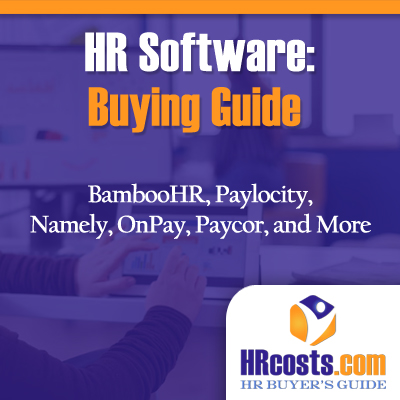
Advantages of HR Outsourcing
Cost Savings
One of the primary reasons businesses choose to outsource their HR functions is the potential for significant cost savings. Outsourcing can help reduce expenses related to hiring and training HR staff, payroll processing, benefits administration, and maintaining compliance with labor laws. By working with an external provider, businesses can access specialized services at a fraction of the cost of maintaining an in-house team.
Access to Expertise Outsourcing
HR services allow companies to tap into a vast pool of professional knowledge and experience. HR providers often have expertise in various industries and can offer valuable insights into best practices, trends, and legal requirements. This can be particularly beneficial for smaller organizations that may not have the resources to hire specialists in every HR function.
Scalability
As a business grows or contracts, its HR needs can change. Outsourcing HR services allows for flexibility in scaling services up or down as needed, without the burden of hiring or laying off employees. This adaptability can be crucial for businesses experiencing rapid growth or dealing with seasonal fluctuations in demand.
Focus on Core Business
By outsourcing HR functions, businesses can devote more time and resources to their core operations. This enables management to focus on strategic planning, product development, and improving customer relations, rather than being bogged down by administrative tasks and compliance issues.
Disadvantages of HR Outsourcing
Loss of Control Outsourcing
HR services can lead to a loss of control over certain aspects of the business. Organizations must rely on external providers to make decisions and execute tasks related to their employees. This can result in a disconnect between the company’s goals and the outsourced HR function, which may negatively impact company culture and employee satisfaction.
Data Security and Privacy Concerns
Transferring sensitive employee information to an external provider can raise data security and privacy concerns. Businesses must ensure that their HR outsourcing partner has robust data protection protocols in place to prevent unauthorized access, data breaches, and compliance issues.
Potential Impact on Employee Relations
Outsourcing HR functions can sometimes have an adverse effect on employee morale and engagement. Employees may feel that their concerns and needs are not being adequately addressed by an external provider, leading to decreased job satisfaction and increased turnover.
Hidden Costs
While HR outsourcing can offer cost savings, it’s essential to be aware of potential hidden expenses. Businesses may encounter additional costs related to contract negotiations, transition processes, and the need for ongoing oversight of the outsourced services. It is crucial to carefully evaluate the total cost of outsourcing before making a decision.
HR outsourcing offers several advantages, including cost savings, access to expertise, scalability, and the ability to focus on core business functions. However, it also comes with potential disadvantages, such as loss of control, data security concerns, impact on employee relations, and hidden costs. The decision to outsource HR services should be carefully considered and based on the unique needs and goals of your organization. Assessing the pros and cons can help you determine whether HR outsourcing is the right choice for your business.
How Much Does Outsourcing HR Cost?
The cost of outsourcing HR services can vary significantly depending on the size of your company, the services required, and the provider you choose. Here’s a general overview of the costs you might encounter when outsourcing HR functions:
- Subscription or flat-rate fees: Many HR outsourcing companies offer monthly or annual subscription plans, which usually provide access to a range of HR services. These fees can range from a few hundred to several thousand dollars per month, depending on the level of support and resources offered.
- Per-employee fees: Some providers charge a fee for each employee, which could be a flat fee or a percentage of the employee’s salary. Per-employee fees can range from $50 to $200 per employee per month, but this can vary depending on the services provided and the company’s size.
- Project-based fees: Some HR outsourcing companies may charge a one-time fee for specific projects, such as creating employee handbooks, managing benefits enrollment, or conducting training programs. The cost of these projects can range from a few hundred to several thousand dollars, depending on the complexity and scope of the work.
- Hourly rates: For more customized HR services or consultations, providers may charge an hourly rate. These rates can range from $50 to $300 per hour, depending on the expertise of the consultant and the nature of the work.
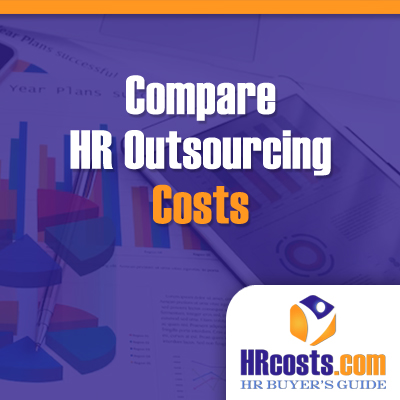
Keep in mind that the cost of outsourcing HR will also depend on the quality and reputation of the provider, the specific services you need, and any additional factors unique to your business. It’s essential to research and compare different HR outsourcing companies to find the one that best fits your budget and requirements.
What are the Phases of Human Resources Management?
Human Resources Management (HRM) involves various processes and activities aimed at effectively managing an organization’s human capital. The phases of HRM can be broadly categorized into the following stages:
- Planning: At this stage, HR professionals analyze the organization’s current workforce and future needs. They develop strategies and plans to meet those needs by attracting, retaining, and developing the right talent. Key activities include workforce planning, succession planning, and budgeting for HR activities.
- Recruitment and Selection: This phase focuses on finding the right candidates to fill job vacancies. It involves job analysis, creating job descriptions and specifications, advertising job openings, screening applicants, conducting interviews, and selecting the most suitable candidates.
- Onboarding and Orientation: Once new employees are hired, they need to be introduced to the company and its culture, policies, and procedures. The onboarding process helps new employees become familiar with their roles, coworkers, and the organization’s expectations. A thorough orientation program can improve employee engagement and retention.
- Training and Development: HRM should include ongoing training and development opportunities for employees to enhance their skills, knowledge, and performance. This phase involves identifying training needs, designing and delivering training programs, and evaluating their effectiveness.
- Performance Management: This phase involves setting performance expectations, monitoring employee performance, providing feedback, and conducting performance appraisals. Effective performance management helps align individual goals with organizational objectives, motivates employees, and identifies areas for improvement.
- Compensation and Benefits: HRM involves designing and managing competitive compensation and benefits packages to attract, retain, and motivate employees. This includes salary structures, bonus programs, and benefits such as health insurance, retirement plans, and paid time off.
- Employee Relations: This phase involves fostering a positive work environment by maintaining open communication, resolving conflicts, and ensuring compliance with labor laws and regulations. HR professionals may also develop and implement policies and procedures related to employee conduct, disciplinary actions, and grievance handling.
- Separation and Offboarding: Employees may leave the organization due to resignation, retirement, or termination. The separation and offboarding process involves managing exit interviews, finalizing paperwork, and ensuring a smooth transition for the departing employee and the organization.
While these phases provide a general overview of the HRM process, it’s essential to recognize that HRM is an ongoing and interconnected set of activities. HR professionals need to continually adapt and evolve their strategies and practices to support the organization’s goals and changing business environment.
Reliable Human Resources Providers
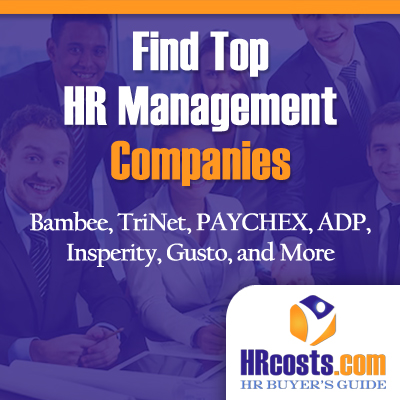
Here is a list of some well-known HR service providers as of April 2023.
- ADP (Automatic Data Processing)
- Paychex
- Insperity
- TriNet
- Zenefits
- Gusto
- BambooHR
- Workday
- Ceridian
- Kronos
- Namely
- Ultimate Software (UKG)
- Oracle HCM Cloud
- SAP SuccessFactors
- Talentsoft
- PeopleStrategy
- PeopleFluent
- Cornerstone OnDemand
- Greenhouse Software
- iCIMS
Keep in mind that the list above is not exhaustive or ranked in any certain order, and new companies and solutions may have emerged in the market since the date of this report. It’s essential to research and compare the features, services, and pricing of various providers to find the best fit for your organization’s needs.
